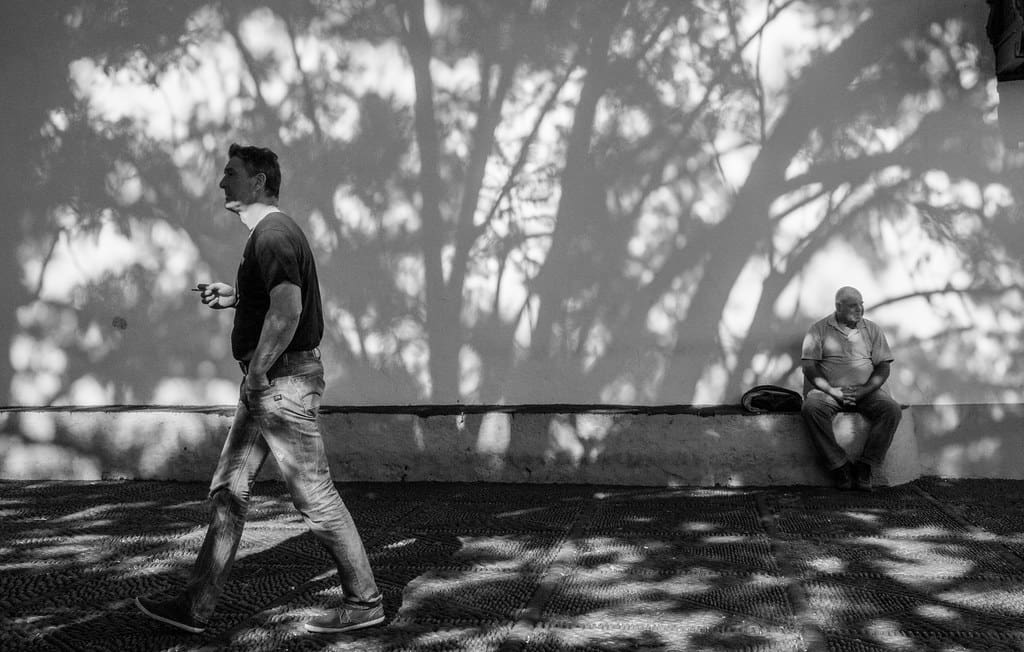A formless soul, devoid of regularity, incapable of adapting to the rigid boundaries that quadrature imposes is what Eugenio Montale (1896 – 1981), in the incipit of his celebrated collection “Cuttlefish Bones” (many poems are contained in “The Collected Poems of Eugenio Montale“), considers as its most intimate and unalterable essence.
Don't ask us the word that squares on every side of our formless soul,
And in letters of fire declares it
And shines like a crocus
Lost amid a dusty meadow.
Ah, the man who goes safely away,
friend to others and himself,
and he doesn't care about his shadow that the heatwave
prints above a shabby wall!
Do not ask us for the formula that worlds can open to you
Yes, some crooked syllables and dry as a branch.
This is only what we can tell you today,
what we are not or what we don't want.
Not perfection of contours or gleaming letters placed on top of skyscrapers but rather a disarming naturalness expressed by defining the aesthetic and moral canons through which any evaluation must take place. Not golden rules or acmes of Greek perfection but simply the self, naked and exposed to all weathers and never afraid to manifest itself even in the shadows, where consensuses fade into everlasting silence.
Not even the “word,” that seed so often transformed into the most diverse linguistic creatures by Montale himself, seems to be able to acquire the right to square a soul so filled with doubtful restlessness. Indeed, to avert the risk of having to face the disappointing discovery that no “Logos” or “Word” can succeed in such a burdensome endeavor, the poet begins with a most peremptory warning: a formless soul can never splash with its violet enthusiasm the monotonous spread of the field of existence. Only dust, the infinitesimal division of every already fragmentary experience, can settle without qualms or pretensions.

But what are these extraordinary “letters of fire” through which the soul should be “declared”? Perhaps Montale does not know them either; perhaps he senses their existence and foreshadows their immense appeal to the most erratic, but he cannot own them. Perhaps, on the contrary, in the dimness of a summer sunset, he felt its warmth as he was “dazzled” by a ruthless Sun that reveals the impregnable solitude reverberating among the “bottle shards” placed to guard an interiority condemned to eternal exile.
If such letters were actually to exist, they would become the summary of a life “constrained” in the whirlwind attempt to observe itself from the outside, a soul aware of the perennial “ennui” which, by rising above the clouds and the stars themselves, becomes capable of no longer perceiving the rough contours of the “inner” stone, forcing man, however, to transition from self-realization (Zenit spiritual) to the dangerous loss of any connection with reality (nadir).
Security is precisely seen as the worst of dangers: as long as man is illuminated by the Sun, constantly needs its rays, and has to lean against the ground or a wall, he will willingly or unwillingly allow a shadow to escape that will indelibly “stain” the surrounding reality.
Therefore, no man can go unnoticed: those who attempt to conceal their existence or think they do not interfere with anything are destined for the shocking realization that they are not alone!
Unformed, scuffed, or covered with shards of glass, the little wall we follow to keep beside us will be our witness, just like the Black Stone of Mecca, which, having absorbed all the sins of man, is changed from a whiteness of white to the darkest of visible colors. The shadow stains penetrate deep and take root to the point of transforming the essence of the rock itself: of too little use is the superficial security of the distracted man.

It is much better, therefore, to limit oneself to a more morose boldness: if squaring is the tendency of man who wishes to elevate himself, he can always seek the solution through a “negative” process, that is, by seeking what he does not allow himself to grasp, those ideas and patterns that “escape” and whose nature is in no way reflected on the imperfect surface of individuality.
The poet can, therefore, come to a conclusion: the power of definition is ideally suited to beings now transcended to a reality where nothing can ever be overshadowed by “egoic” uncontrolled instincts, but it is almost inadequate in a world where no formula can ever give birth to new universes and where only a few, “crooked,” unanimated “syllables” can give shape to the few, fleeting glimmers that sometimes appear to us as unquenchable fires.
If you like this post, you can always donate to support my activity! One coffee is enough!

